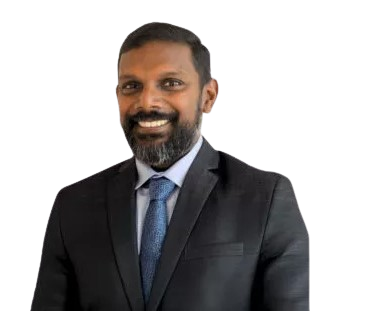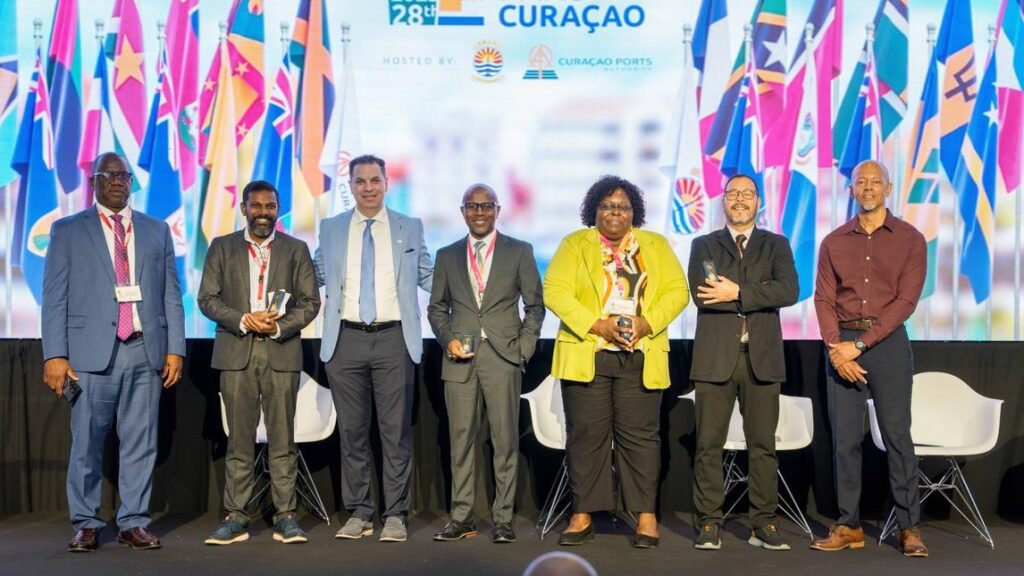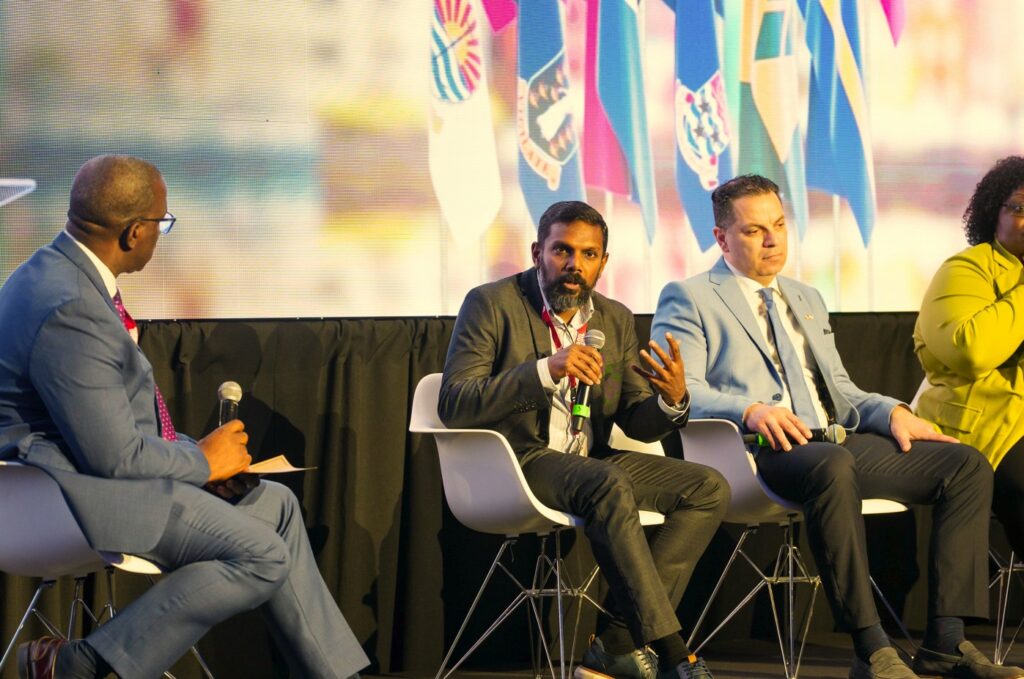Charting a Sustainable Course: ABL at the Port Management Authority of Curaçao General Meeting
Regional Manager for Ports and Terminals for ABL Americas, Ashwin Parambath, recently represented ABL at the Port Management Authority of Curaçao’s (PMAC) Annual General Meeting in the vibrant city of Willemstad. The event brought together terminal operators, capital investors, and shipping industry leaders to discuss the evolving landscape of maritime trade in the Caribbean.
In this blog, Ashwin shares his reflections from the meeting and highlights the key issues and opportunities facing small island ports.
Bridging the Global and Local: Ashwin’s Experience on the Environmental Stewardship Focal Panel
One of the most impactful sessions for Ashwin was the Environmental Stewardship Focal Panel. The discussion delved into the real-world challenges small island ports face in adapting to the International Maritime Organisation’s Carbon Intensity Indicator (CII) framework, a global push toward decarbonisation that, while important, is disproportionately burdensome for small-volume operators.
“The Environmental Stewardship Focal Panel was a unique experience for me, particularly since it was an impromptu session. I was asked questions like, “What can your country do to help the Caribbean Islands better their infrastructure?” and in my mind, I was wondering whether my answer should hold the weight and opinion of the entire United States of America.
But my ability to think on my feet helped me share examples of how small towns in America face some of the same challenges that smaller countries around the world encounter.”
Ashwin Parambath, Regional Manager for Ports and Terminals for ABL Americas

Ashwin drew on his experience working with smaller U.S. communities to offer meaningful insight. He cited Bellville, Texas, a town familiar with land-based drilling but now facing challenges in public acceptance of Battery Energy Storage Systems (BESS). He explained:
“It’s a classic case of ‘the devil you know is better than the devil you don’t know, Although BESS technology presents less risk than older oil drilling methods, public perception often skews towards fear of the new.”
This example resonated with the audience, demonstrating how small island ports and rural U.S. towns face similar hurdles when introducing new, sustainable technologies.
Levelling the Playing Field for Small Ports
Ashwin also spoke about the operational limitations of small island ports, such as limited infrastructure, lack of Ship-to-Shore (STS) cranes, and low intermodal connectivity. These constraints make it more challenging for small-volume ports to comply with IMO standards, despite having to invest more per capita in decarbonisation efforts. He emphasised:
“These conversations called for solutions that are not only environmentally sound but also economically equitable, Systems that empower smaller operators to meet global standards without disproportionate burden.”
How ABL Is Supporting the Transition
That’s exactly where ABL’s emiTr platform comes in.
emiTr is a purpose-built digital emissions monitoring and reporting tool designed to help ports of all sizes analyse, track, and act on emissions data. By leveraging AIS data and scope-based emissions profiling, emiTr enables terminal operators to:
- Identify high-impact emissions sources
- Simulate carbon reduction scenarios
- Develop tailored decarbonisation plans aligned with IMO regulations
Ashwin notes: “For operators in the Caribbean, tools like emiTr mean you don’t have to compromise financial sustainability for environmental compliance. You can visualise your emissions landscape, calculate carbon costs, and prioritise decarbonisation investments with clarity and confidence.”
ABL’s commitment to sustainability doesn’t stop at emissions tracking. Across the Caribbean and beyond, ABL is helping ports transition to cleaner, more resilient energy systems through a suite of renewable technologies.
- Battery Energy Storage Systems (BESS): Improve grid resilience and reduce reliance on carbon-heavy backup systems.
- Shore Power Solutions: Enable vessels to plug into clean energy while docked, cutting local emissions.
- Floating Solar and Hybrid Renewables are being deployed through affiliates like OWC and Innosea. These technologies leverage available water surfaces, an elegant solution for ports with limited land area to generate sustainable energy and can be integrated with BESS and other systems to create a truly decarbonised port infrastructure.
A Call to Action for Inclusive Innovation
This year’s PMAC meeting served not only as a knowledge exchange but also as a call to action. As the maritime industry moves towards a greener future, Ashwin and the ABL ports and terminals team are committed to ensuring that progress is inclusive and that innovation is accessible to all – not just the largest players.
At ABL, we’re proud to support this transition with the tools, technology, and expertise needed to create cleaner, more connected, and resilient ports.
Interested in learning how ABL can support your port’s decarbonisation journey? Contact our maritime team or visit the emiTr page to explore how our global solutions can be tailored to your local context.


